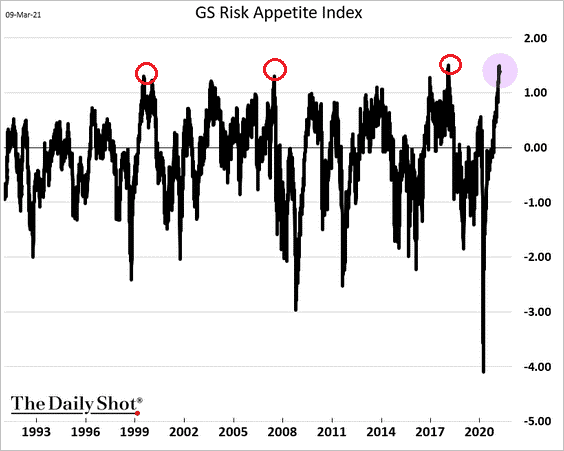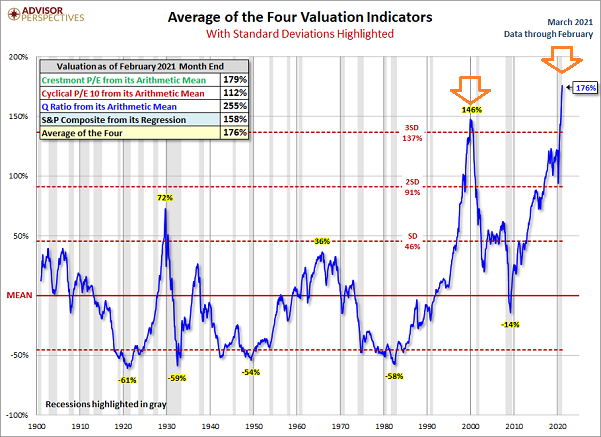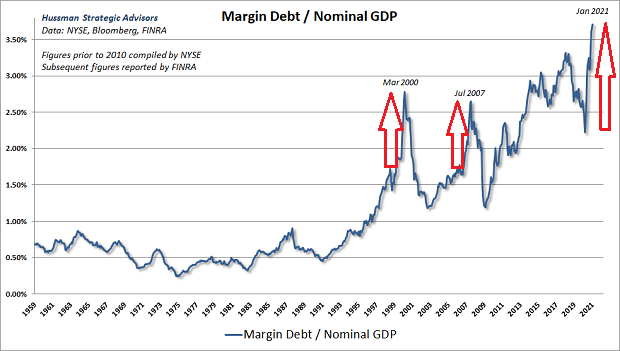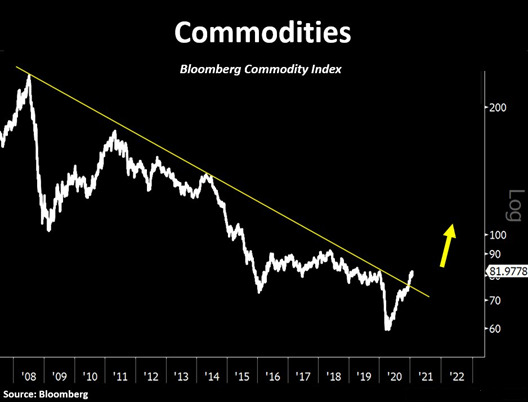Investors may or may not be aware of their euphoric attitude toward risk taking. Yet Goldman Sachs data suggest that risk appetite is every bit as extreme today as it was before the dot-com bubble burst in 2000 and before the global financial collapse in 2008.

Participants today are buying with little concern for rising yields, credit risk or valuations. Historically speaking, an absence of regard hasn’t worked out so well.
The last time stock valuations were this far out of whack? The S&P 500 lost half of its body weight, while the Nasdaq fell roughly -75% over a two-and-a-half year time frame.

Perhaps disturbingly, the Mizuho Financial Group found that a large percentage of survey respondents intend to sock away a portion of stimulus cash in stocks and bitcoin. Their calculation? Roughly 10.5% of the $380 billion in stimulus checks to Americans will wind up in the aforementioned asset classes, or $40 billion.
Equally troubling, participants with margin debt accounts have been leveraging the heck out of their net worth. Margin debt as a percentage of the economy had never surpassed 3.5%, until now.
Most notably, spikes in the margin debt-to-GDP ratio have been associated with devastating stock market disasters in the past. Will 2021 be different?

Simply stated, participants have developed an immunity to the idea that assets might depreciate from elevated levels. And the Federal Reserve’s money printing ($120 billion per month at present) is serving as the investor vaccine of choice.
It is true that any market weakness would likely see the Fed respond with yet another “drug fix.” On the other hand, the Fed’s prescriptions throughout history have not always worked quickly enough.
The Fed may disappoint or miscalculate. And by the time the central bank rights the stock ship, margin calls alongside a brutal unwinding of leverage could overwhelm. In other words, unchecked greed can morph into unrestrained panic selling.
While most assets are ‘bubblicious’ — stocks, bonds, real estate, crypto, NFTs — commodities may be the one area for investors to find true value. Commodities provide some protection against genuine inflation. They also stand to benefit should the global economy recover in earnest.

Would you like to receive our weekly newsletter on the stock bubble? Click here.
